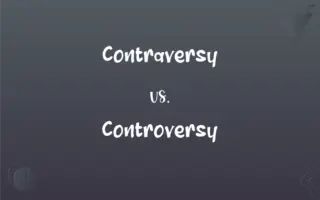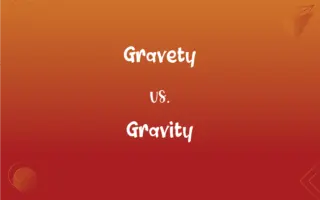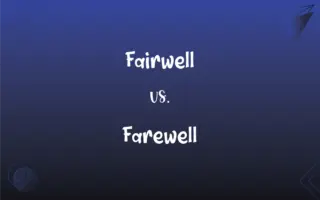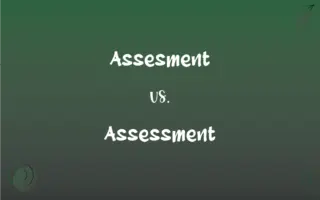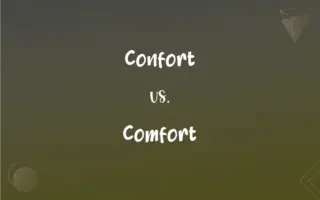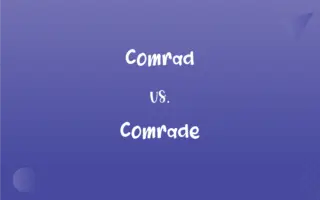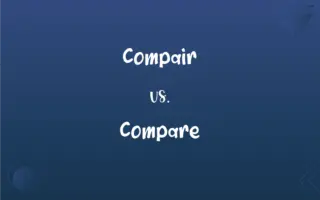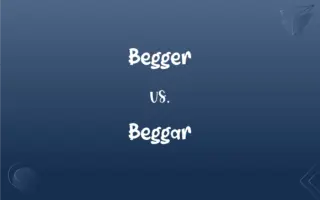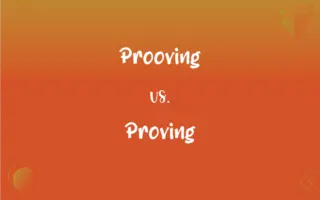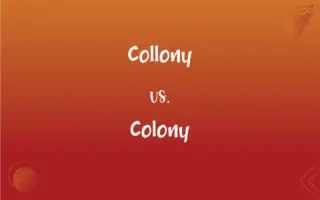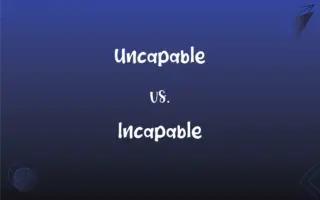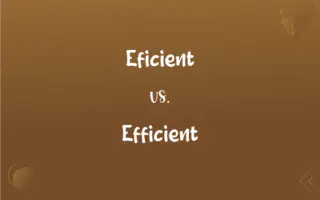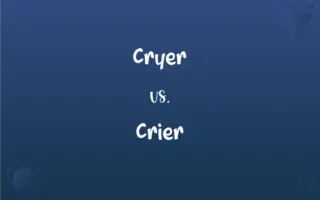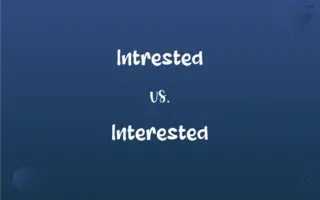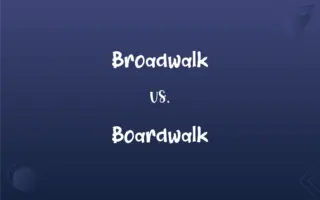Inexclusive vs. Exclusive: Mastering the Correct Spelling
Edited by Aimie Carlson || By Janet White || Updated on March 12, 2024
"Inexclusive" is incorrect; the correct spelling is "Exclusive," referring to something restricted or not available to everyone.
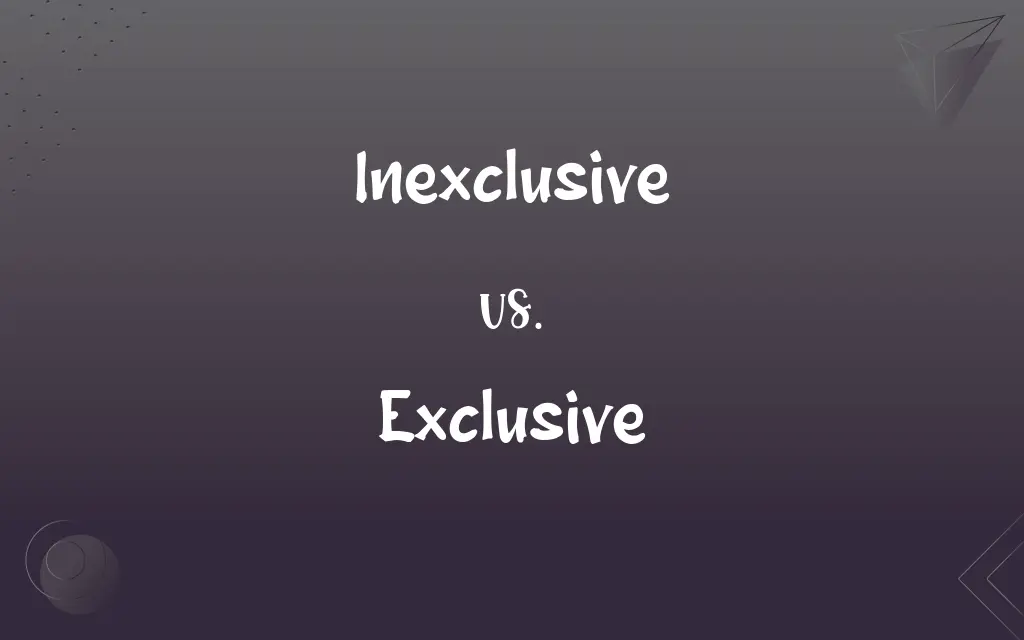
Which is correct: Inexclusive or Exclusive
How to spell Exclusive?

Inexclusive is Incorrect

Exclusive is Correct
ADVERTISEMENT
Key Differences
The prefix “Ex-” in “Exclusive” means out of, away from, and it can help in remembering the correct spelling.
Think of the “sive” in “Exclusive” as in “decisive,” focusing on making a clear distinction.
Recall the “clu” in “Exclusive” as in “club,” representing a restricted group, to reinforce the right spelling.
Visualize an “Exclusive club,” emphasizing the isolation and restriction to remember the spelling.
Associate “Exclusive” with “Exclude,” both sharing the root “exclud,” relating to shutting out.
ADVERTISEMENT
Correct usage of Exclusive
The deal was said to be inexclusive to members only.
The deal was said to be exclusive to members only.
The party was supposed to be inexclusive, but it ended up being open to everyone.
The party was supposed to be exclusive, but it ended up being open to everyone.
This offer is not inexclusive; it's meant for a select few.
This offer is not exclusive; it's meant for a select few.
They launched an inexclusive product line that was not available to the general public.
They launched an exclusive product line that was not available to the general public.
Exclusive Definitions
Exclusive can refer to high-quality or high-cost products or services. Example
The designer released an exclusive line of handbags.
Exclusive implies the exclusion of others, not mixed or associated. Example
Members have exclusive access to the club.
Exclusive means limited to only one person or group. Example
The interview was an exclusive with the president.
Exclusive means sole, undivided attention or devotion. Example
The agency has the exclusive right to distribute the product.
Exclusive can refer to news that is reported by one journalist or outlet only. Example
The reporter got an exclusive scoop on the story.n “club,” representing a restricted group, to reinforce the right spelling.
Excluding or tending to exclude
Exclusive barriers.
Not allowing something else; incompatible
Mutually exclusive conditions.
Not divided or shared with others
Exclusive publishing rights.
Not accompanied by others; single or sole
Your exclusive function.
Complete; undivided
Gained their exclusive attention.
Not including the specified extremes or limits, but only the area between them
10-14, exclusive.
That is, 11, 12, and 13.
Excluding some or most, as from membership or participation
An exclusive club.
Catering to a wealthy clientele; expensive
Exclusive shops.
(Linguistics) Relating to or being a first person plural pronoun that excludes the addressee, such as we in the sentence Pat and I are in town, so we can meet you for lunch.
A news item initially released to only one publication or broadcaster.
An exclusive right or privilege, as to market a product.
(literally) Excluding items or members that do not meet certain conditions.
(figuratively) Referring to a membership organisation, service or product: of high quality and/or renown, for superior members only. A snobbish usage, suggesting that members who do not meet requirements, which may be financial, of celebrity, religion, skin colour etc., are excluded.
Exclusive clubs tend to serve exclusive brands of food and drinks, in the same exorbitant price range, such as the 'finest' French châteaux.
Exclusionary.
Whole, undivided, entire.
The teacher's pet commands the teacher's exclusive attention.
(linguistics) Of or relating to the first-person plural pronoun when excluding the person being addressed.
The pronoun in "We're going to a party later, but you aren't invited" is an exclusive "we".
(of two people in a romantic or sexual relationship) Having a romantic or sexual relationship with one another, to the exclusion of others.
They decided to no longer be exclusive.
Information (or an artefact) that is granted or obtained exclusively.
The editor agreed to keep a lid on a potentially disastrous political scoop in exchange for an exclusive of a happier nature.
A member of a group who exclude others from their society.
(grammar) A word or phrase that restricts something, such as only, solely, or simply.
Having the power of preventing entrance; debarring from participation or enjoyment; possessed and enjoyed to the exclusion of others; as, exclusive bars; exclusive privilege; exclusive circles of society.
Not taking into the account; excluding from consideration; - opposed to inclusive; as, five thousand troops, exclusive of artillery.
One of a coterie who exclude others; one who from real of affected fastidiousness limits his acquaintance to a select few.
A news report that is reported first by one news organization;
He got a scoop on the bribery of city officials
Not divided or shared with others;
They have exclusive use of the machine
Sole rights of publication
Excluding much or all; especially all but a particular group or minority;
Exclusive clubs
An exclusive restaurants and shops
Not divided among or brought to bear on more than one object or objective;
Judging a contest with a single eye
A single devotion to duty
Undivided affection
Gained their exclusive attention
Exclusive Sentences
This store offers exclusive designs you can't find anywhere else.
The event is exclusive to VIP members.
They struck an exclusive deal with the distributor.
The designer released an exclusive collection this season.
Only a select few received an invitation to the exclusive gala.
The interview was an exclusive with the famous actor.
The restaurant is known for its exclusive wine list.
The magazine published an exclusive story on the celebrity.
Membership in the club is highly exclusive.
She was wearing an exclusive piece of jewelry.
The service is exclusive to residents of the building.
Access to the lounge is exclusive to first-class passengers.
The resort offers exclusive packages for honeymooners.
The software is available through an exclusive license.
The brand has an exclusive partnership with the athlete.
The interview offers an exclusive insight into his life.
The club offers exclusive benefits to its members.
The app provides exclusive content to its subscribers.
The book launch was an exclusive event with selected guests.
The conference is exclusive to industry professionals.
The exhibition features exclusive artworks from private collections.
The seminar is exclusive to company employees.
The documentary secured exclusive footage of the event.
They enjoyed exclusive rights to the music track.
They had an exclusive preview of the new collection.
FAQs
What is the pronunciation of Exclusive?
Exclusive is pronounced as /ɪkˈskluːsɪv/.
Why is it called Exclusive?
It is called “Exclusive” because it refers to something that excludes others, being restricted or limited.
Which vowel is used before Exclusive?
The vowel “an” can be used before Exclusive, as in “an exclusive.”
What is the root word of Exclusive?
The root word of Exclusive is “exclude.”
Which conjunction is used with Exclusive?
Any conjunction can be used with Exclusive, depending on the sentence.
What is the singular form of Exclusive?
Exclusive.
What is the plural form of Exclusive?
Exclusives.
Which preposition is used with Exclusive?
“To” is commonly used with Exclusive, as in “exclusive to members.”
Is Exclusive an abstract noun?
Yes, when Exclusive is used as a noun, it can be considered an abstract noun.
Is Exclusive a noun or adjective?
Exclusive can be both a noun and an adjective.
What is the verb form of Exclusive?
The verb form is “to exclude.”
Is Exclusive a vowel or consonant?
The word Exclusive contains both vowels and consonants.
Is Exclusive a countable noun?
Yes, when used as a noun, it can be countable, as in “several exclusives.”
Is Exclusive an adverb?
No, Exclusive is not an adverb.
Is the Exclusive term a metaphor?
No, but it can be used metaphorically in creative writing or expression.
Which article is used with Exclusive?
The article “an” is used with Exclusive.
Is Exclusive a collective noun?
No, Exclusive is not a collective noun.
What is the second form of Exclusive?
Exclusive does not have forms as it is primarily an adjective or a noun.
What is the third form of Exclusive?
Exclusive does not have forms as it is primarily an adjective or a noun.
How is Exclusive used in a sentence?
"The resort offers an exclusive package to its premium members, allowing them to enjoy additional services and amenities."
Is Exclusive a negative or positive word?
Exclusive is neutral but can be perceived as positive or negative depending on the context.
How many syllables are in Exclusive?
Exclusive has three syllables.
What is a stressed syllable in Exclusive?
The second syllable “clu” is stressed in Exclusive.
What is another term for Exclusive?
Another term for Exclusive is “restrictive” or “selective.”
Which determiner is used with Exclusive?
Determiners like “this,” “that,” “my,” “his,” “her,” can be used with Exclusive.
What is the first form of Exclusive?
Exclusive does not have forms as it is primarily an adjective or a noun.
Is the word Exclusive imperative?
No, Exclusive is not used in the imperative mood.
How do we divide Exclusive into syllables?
Ex-clu-sive.
What part of speech is Exclusive?
Exclusive can be both a noun and an adjective.
What is the opposite of Exclusive?
The opposite of Exclusive is “inclusive.”
About Author
Written by
Janet WhiteJanet White has been an esteemed writer and blogger for Difference Wiki. Holding a Master's degree in Science and Medical Journalism from the prestigious Boston University, she has consistently demonstrated her expertise and passion for her field. When she's not immersed in her work, Janet relishes her time exercising, delving into a good book, and cherishing moments with friends and family.
Edited by
Aimie CarlsonAimie Carlson, holding a master's degree in English literature, is a fervent English language enthusiast. She lends her writing talents to Difference Wiki, a prominent website that specializes in comparisons, offering readers insightful analyses that both captivate and inform.
